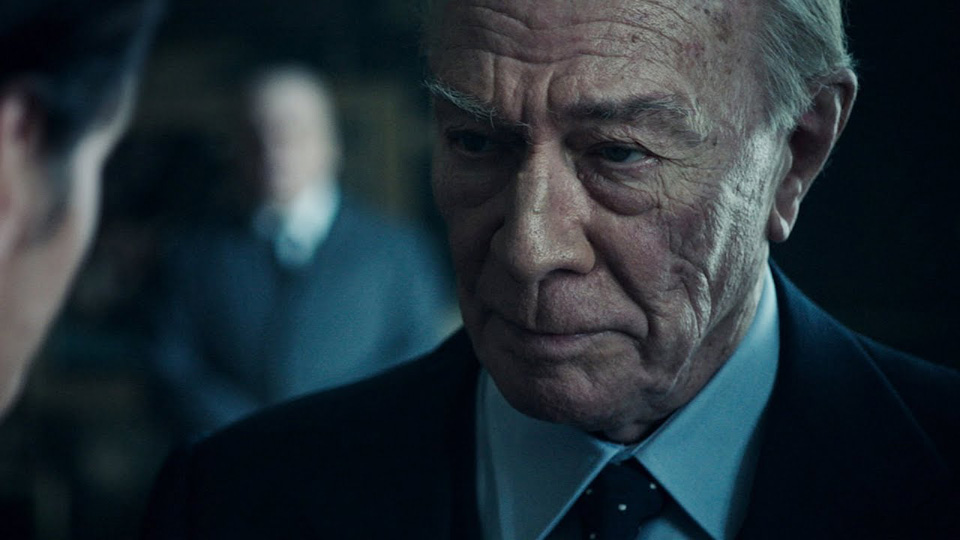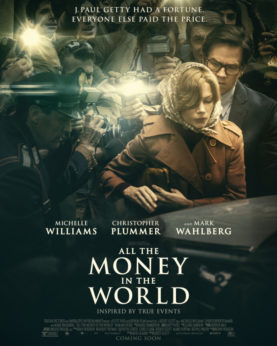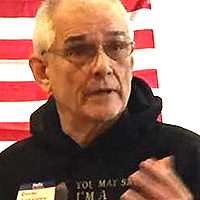
“If you know the enemy and know yourself, you need not fear the result of a hundred battles.” —Sun Tzu, The Art of War.
“The ideas of the ruling class are in every epoch the ruling ideas, i.e., the class which is the ruling material force of society, is at the same time its ruling intellectual force.” — Karl Marx, The German Ideology.
Ridley Scott’s new film All the Money in the World is an important contribution to the development of a counter-hegemonic culture, in other words, a work of art that challenges the dominant culture of the U.S. oligarchy.
The dominant culture exhibits numerous objectionable features, for example, patriarchal rule. Racism, war, poverty, exploitation, and terror also add powerful elements to the culture of capital.
Now I’m not a professional film critic. I don’t even play one on TV. I’m not going to get into the strong acting, or the rich characterizations in the screenplay. I won’t mention the subplots and the supporting roles, and I won’t comment on the look, feel and style of the film, the pacing, the setting, the lighting, or any pertinent biographical and historical background on the fortunes of the J. Paul Getty family.
After that disclaimer, you can quit reading right now if you want.
But here’s what grabbed me: All the Money in the World is an articulate depiction of the inhumanity of the human beings at the top, the One Percent—or more accurately the 0.1 percent—who control all the wealth and try to control the path of things to come. This is a compelling reason to see this film, to viscerally feel in your gut what surpasses any abstract thoughts concerning the evil of our oligarchs.
All the Money first caught my attention when director Ridley Scott announced that he had cut all the scenes with Kevin Spacey (caught up in the sexual abuse scandals) and reshot them with Christopher Plummer. Actually, Plummer may have portrayed the billionaire oil tycoon J. Paul Getty more effectively given his advanced age and lower energy level than Spacey.
The most striking element in the film is the portrayal of Marx’s famous critique of capitalist culture as the “fetishization of commodities.” It means that people in a capitalist society begin to treat commodities as if value is inherent in the objects themselves, rather than in the amount of real labor expended to produce the object.
Getty’s character articulates his love of things that substitutes for any feelings for his grandson. While his grandson’s mother Gail (Michelle Williams) begs for his help, Getty gazes lovingly at a Renaissance portrait of a mother and child that he is bargaining to acquire—a vivid definition of the term “reification,” the making of a thing out of real live human relationships. This portrayal exposes the commodity fetish as the cultural product of the oligarchs, an excrescence that poisons the working class culture of solidarity.
Getty’s thousands of acquisitions, it bears stating, form the heart and substance of the world-renowned J. Paul Getty Museum, with its two sites in Los Angeles, one in Malibu (the Getty Villa) and the other, the Getty Center, in West L.A. off the 405 freeway.
The film goes to the heart of the commodity fetish as a contradiction of working class, or perhaps I might say just plain human solidarity. Getty’s 16-year-old grandson J. Paul Getty III (Charlie Plummer, no relation to Christopher) becomes a human commodity in 1973 when he’s kidnapped. The ransom-seekers house and feed him while waiting to sell him, but Getty refuses to buy. Then they sell him to a wealthy Mafia crime family who start carving pieces of the human-commodity Paul, beginning with an ear, to advance the bargaining.
Although there are demonstrations of empathy and humanity, which eventually save the boy, the thriller echoes the history of slavery where millions of human beings were held captive, forced to labor, bought and sold on the open market as objects.
The story of the commodification of everything is very contemporary. What do we see now coming out of the White House and Congress but an attempt to utterly and completely financialize every aspect of society, every human bond, every worthy endeavor?—health care, education, housing, infrastructure, national parks, culture, media, faith, work, love, family.
The trailer can be viewed here.
Two thumbs up.
All the Money in the World
Directed by Scott Ridley
Written by David Scarpa, based on John Pearson’s 1995 book Painfully Rich: The Outrageous Fortunes and Misfortunes of the Heirs of J. Paul Getty.
Released December 25, 2017
132 minutes

MOST POPULAR TODAY


Zionist organizations leading campaign to stop ceasefire resolutions in D.C. area

High Court essentially bans demonstrations, freedom of assembly in Deep South

Communist Karol Cariola elected president of Chile’s legislature

Afghanistan’s socialist years: The promising future killed off by U.S. imperialism






Comments